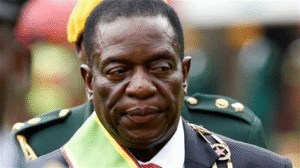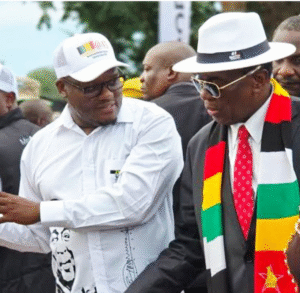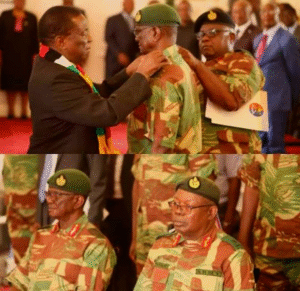RAMPANT CORRUPTION AND HUMAN RIGHTS ABUSES REVEALED IN ZIMBABWE’S LATEST HUMAN RIGHTS REPORT

In a damning assessment, the 2023 Country Reports on Human Rights Practices has laid bare the pervasive corruption and critical human rights issues afflicting Zimbabwe. Despite the presence of specialized anti-corruption courts in all 10 provinces, the report highlights significant failings, including political interference and subpar investigations, which undermine the judicial processes intended to combat corruption.
Petty corruption remains a daily reality in Zimbabwe, perpetrated by low- to mid-level officials, including police and local authorities. More alarmingly, grand corruption involves high-level political elites exploiting their power for personal gain. This includes alarming revelations from Al Jazeera’s investigative series ‘Gold Mafia’, which implicates top officials in schemes involving gold smuggling and money laundering through international banking networks in South Africa and the UAE. Prominent figures linked to President Emmerson Mnangagwa, such as Ambassador-at-Large Uebert Angel and Zimbabwe Miners’ Federation president Henrietta Rushwaya, have been identified in these nefarious activities.
The report further criticizes the Zimbabwe Anti-Corruption Commission (ZACC) for its ineffectiveness. Despite handling 684 complaints in 2022 – a 38 percent decrease from the previous year – ZACC’s lack of prosecutorial power has led to a cycle of ‘catch and release’ where corrupt officials are detained but not convicted.
Zimbabwe’s prisons also come under severe scrutiny. Overcrowded and underfunded, these facilities pose dire threats to inmate welfare, with frequent reports of food shortages, lack of clean water, and insufficient medical care. The Harare Remand Prison, notably overpopulated, has become a hotbed for violence and abuse, with former inmates reporting daily beatings at the hands of guards. Children under four, residing with their incarcerated mothers, suffer additional hardships, sharing the scant food allocations with their parents rather than receiving their own.
The human rights landscape is further tarnished by the government’s failure to address politically motivated violence. The report notes specific instances, such as the murder of Persuade Mandara by the Zimbabwe Republic Police under dubious circumstances linked to grain theft, and the abduction and killing of CCC activist Tapfumaneyi Masaya, underscoring a pattern of impunity and governmental malfeasance.
Additionally, during the electoral periods, instances of voter intimidation by groups linked to the Central Intelligence Organisation have been documented. These groups, operating under the guise of conducting exit polls, have coerced voters and infringed upon the democratic process.
Human rights defenders and non-governmental organizations face constant harassment and surveillance, labeled as threats to national security or agents of foreign influence. In one noted instance, lawyers Doug Coltart and Tapiwa Muchineripi were arrested while representing victims of abduction and torture, reflecting the state’s broader strategy of suppressing dissent and controlling narratives through fear and repression.
These abuses are symptomatic of a broader crisis of governance in Zimbabwe, where state institutions are wielded as tools of political power rather than mechanisms of public service and accountability. The international community, along with local activists, continues to call for substantial reforms and the establishment of genuine safeguards to protect human rights and restore justice in Zimbabwe. However, as the situation currently stands, the outlook remains bleak, with corruption deeply entrenched and human rights continually trampled upon.



